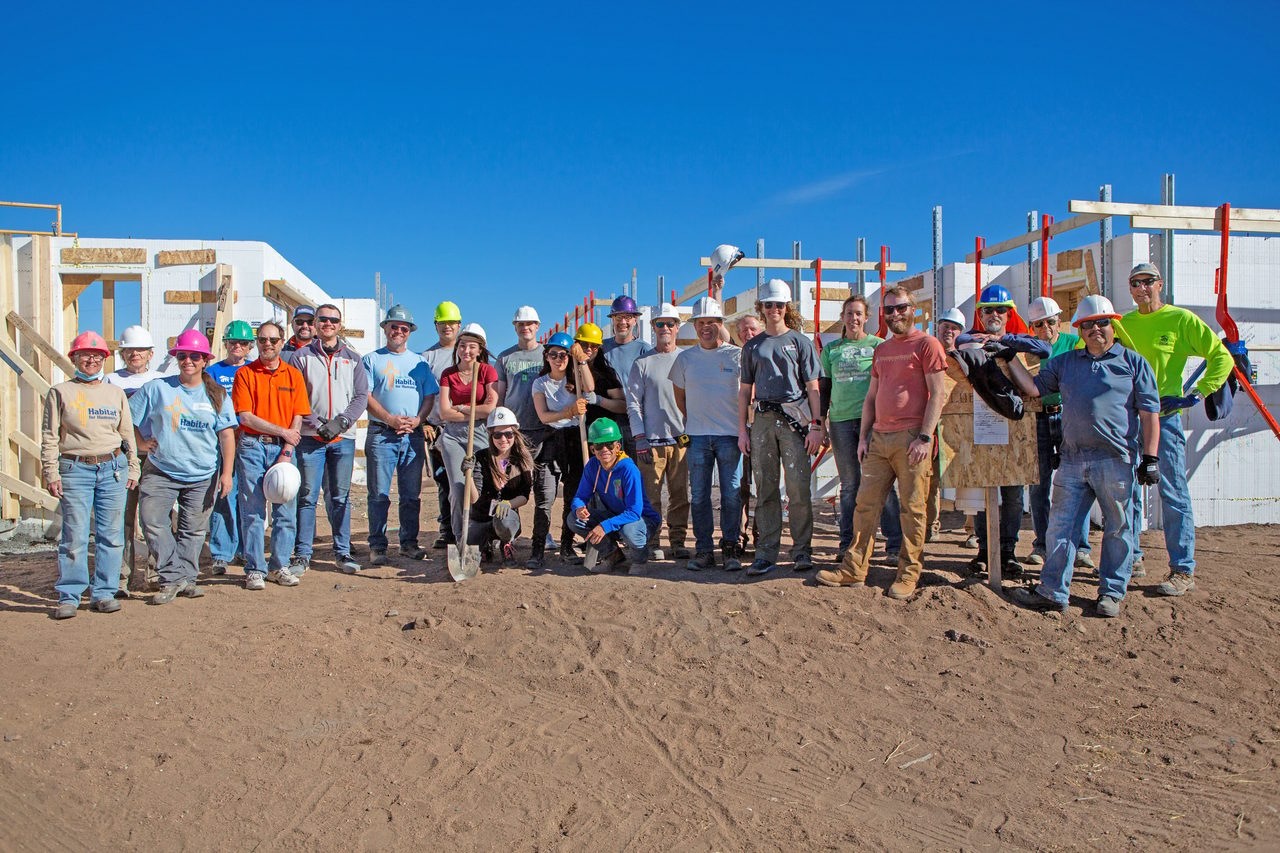
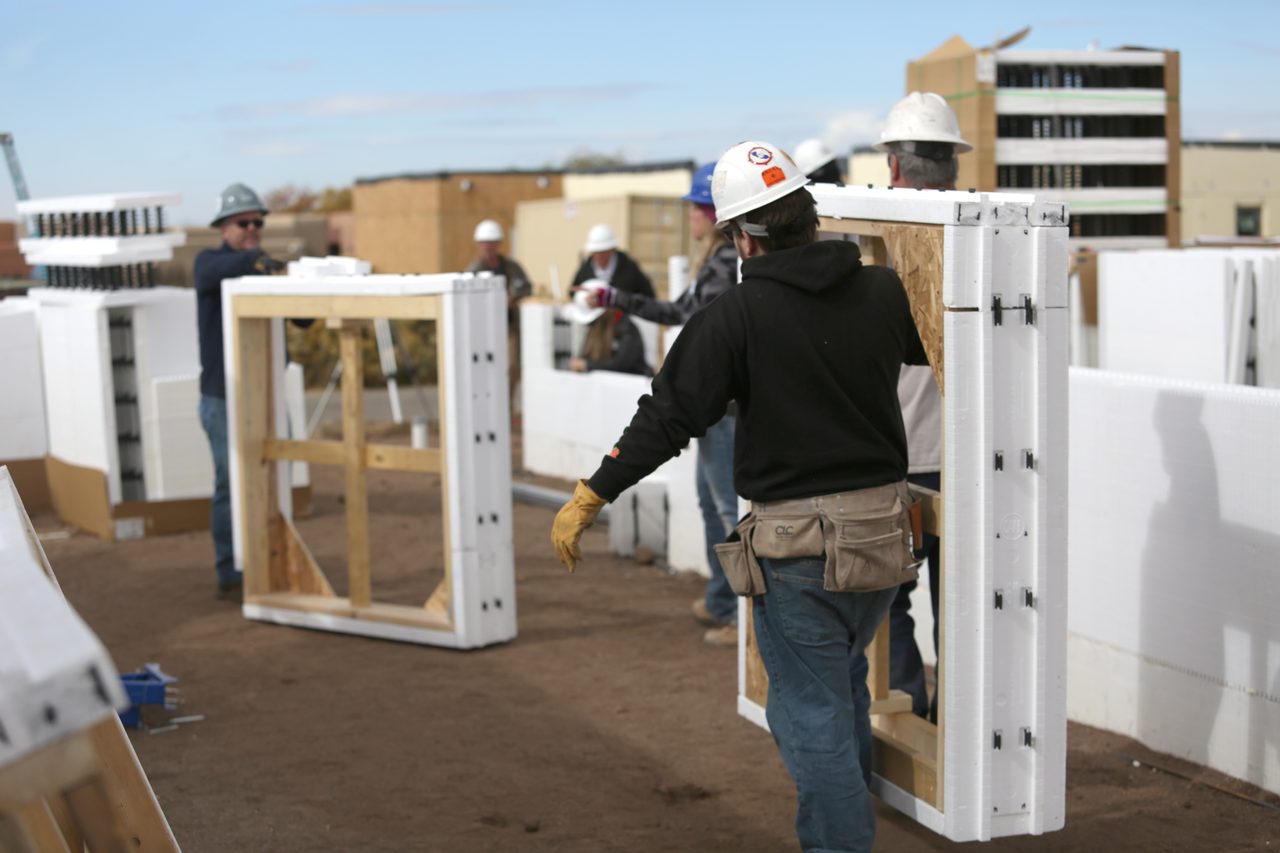
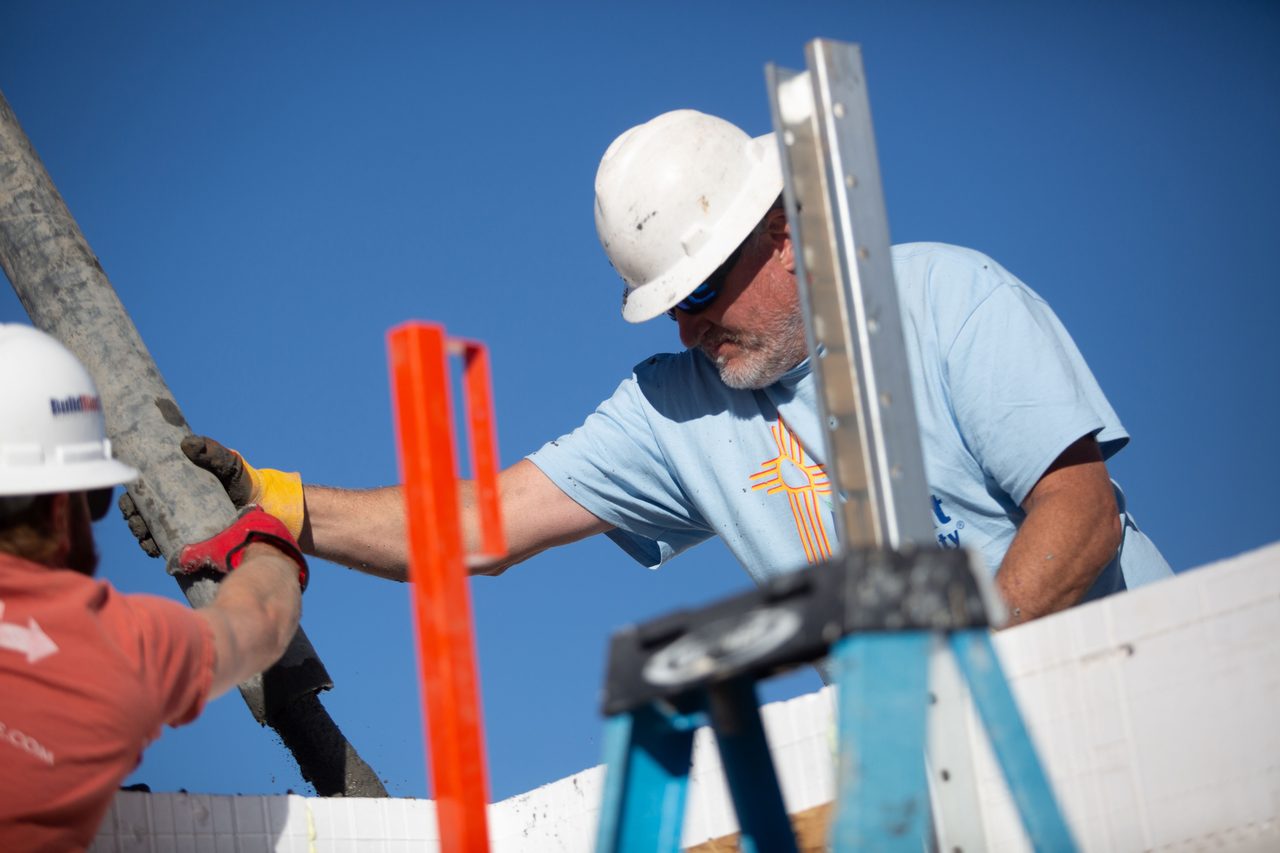
Habitat for Humanity and the NRMCA: Exploring the Benefits of
Building with ICFs
How organizations have found better, more efficient ways to build during our industry’s unique state.
By Isaiah Werner
As we move into 2022, the building industry is in an interesting place. Energy codes are becoming more stringent to combat the effects of our changing climate. Material availability is hit or miss depending on what a builder needs; the price of wood continues to fluctuate, and yet the demand for new construction remains incredibly high. Builders are taking all of this information into consideration as they plan for the future and work to meet the growing and changing demands of their customers.
One organization doing its due diligence to find better, more efficient ways to build is Habitat for Humanity International. In association with the “Build With Strength” program spearheaded by the National Redi Mixed Concrete Association, Habitat and its affiliates are building several new homes using insulating concrete forms. The NRMCA is partnering with the Insulating Concrete Forms Manufacturers Association , whose member companies are providing training, education, and materials for dozens of Habitat ICF builds over the next five years.
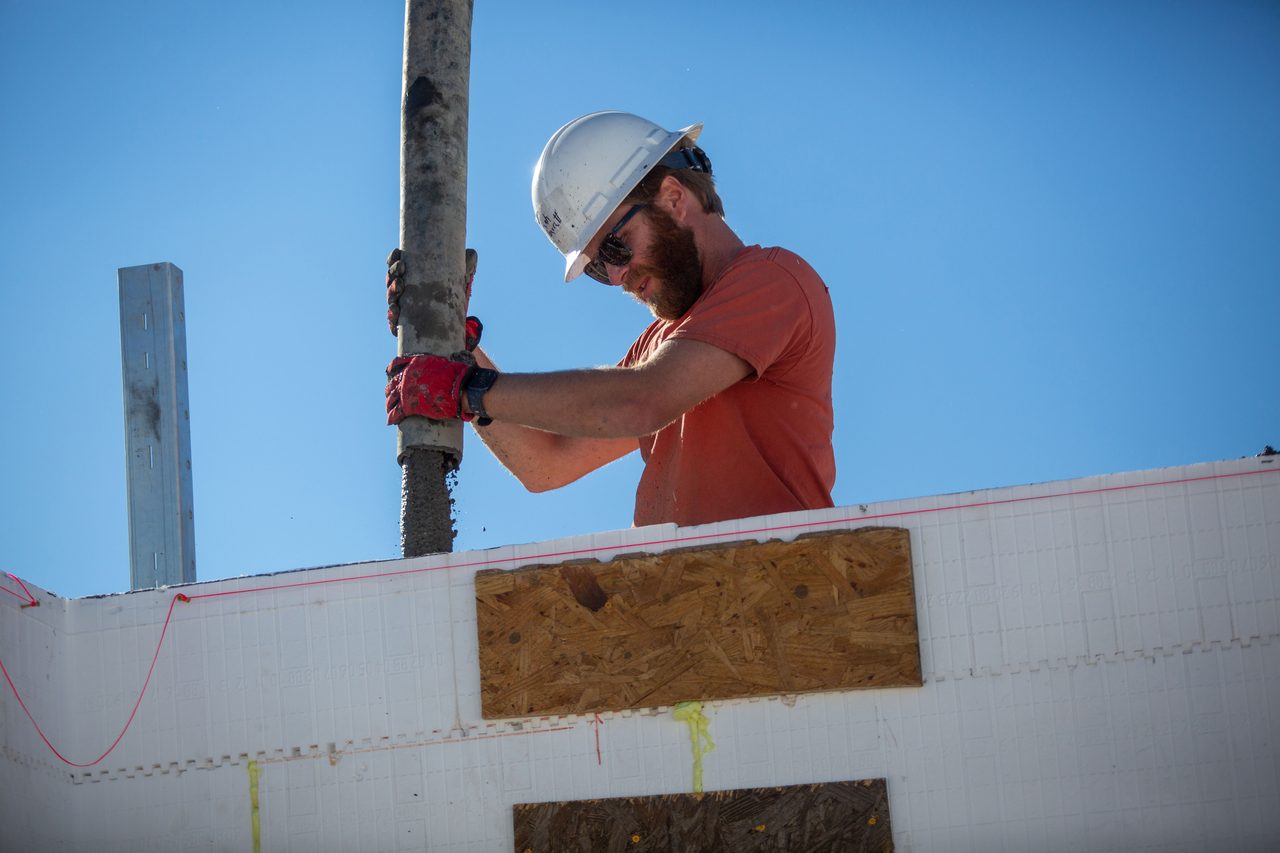
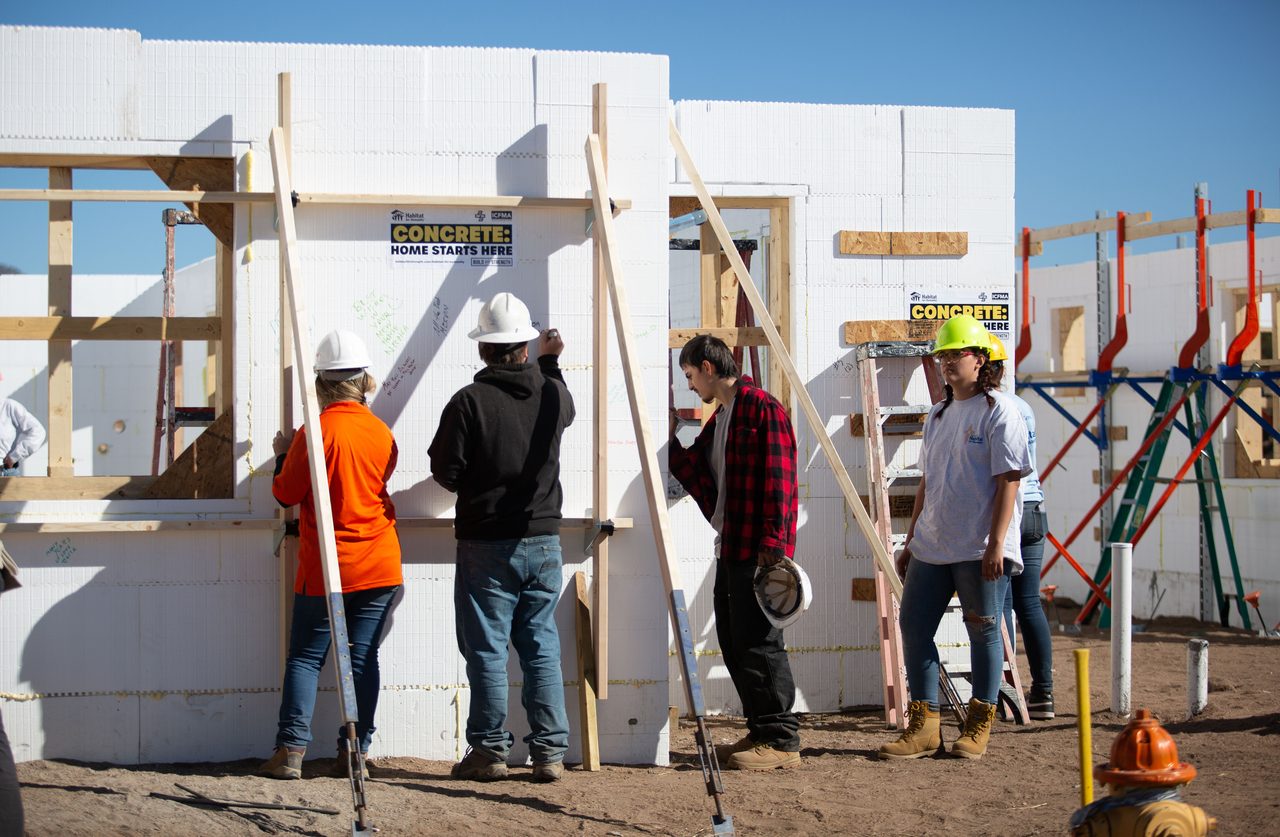
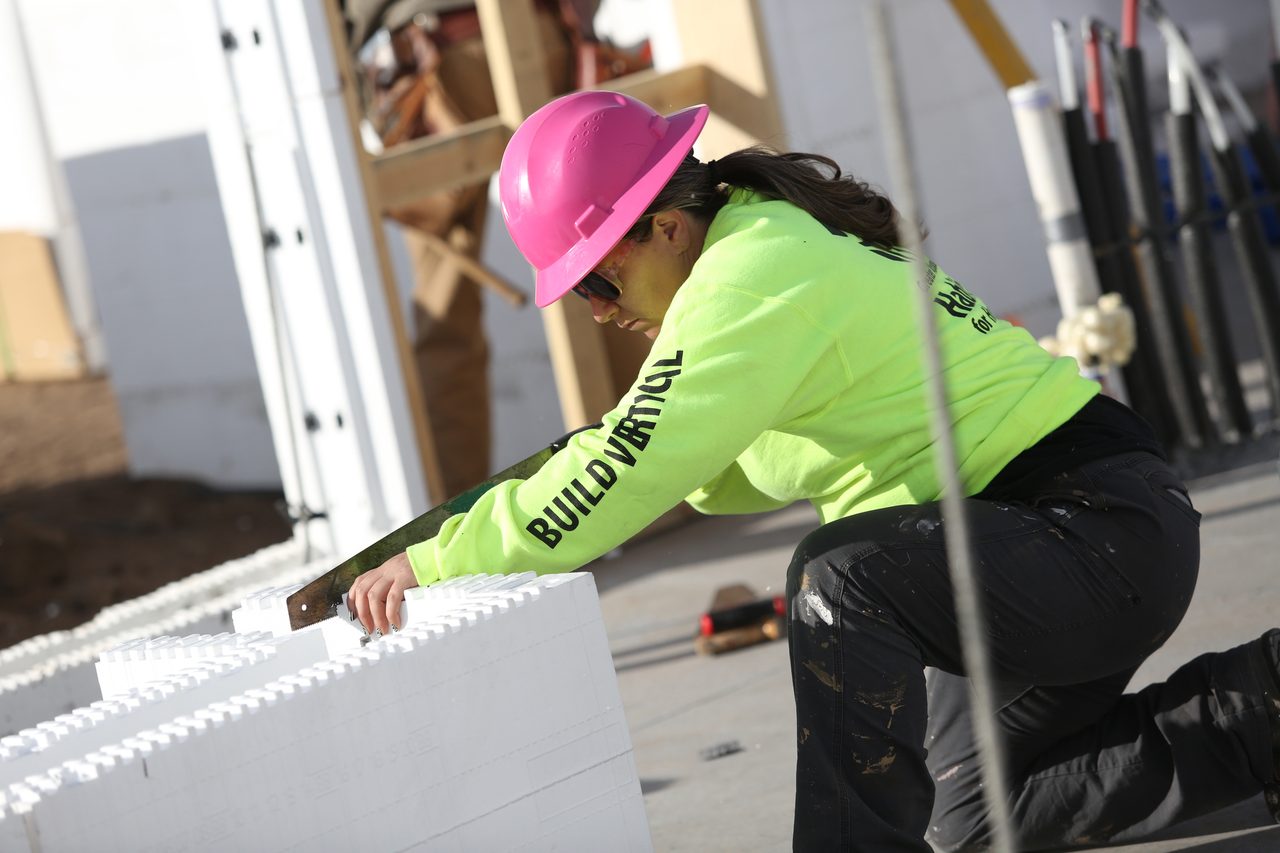
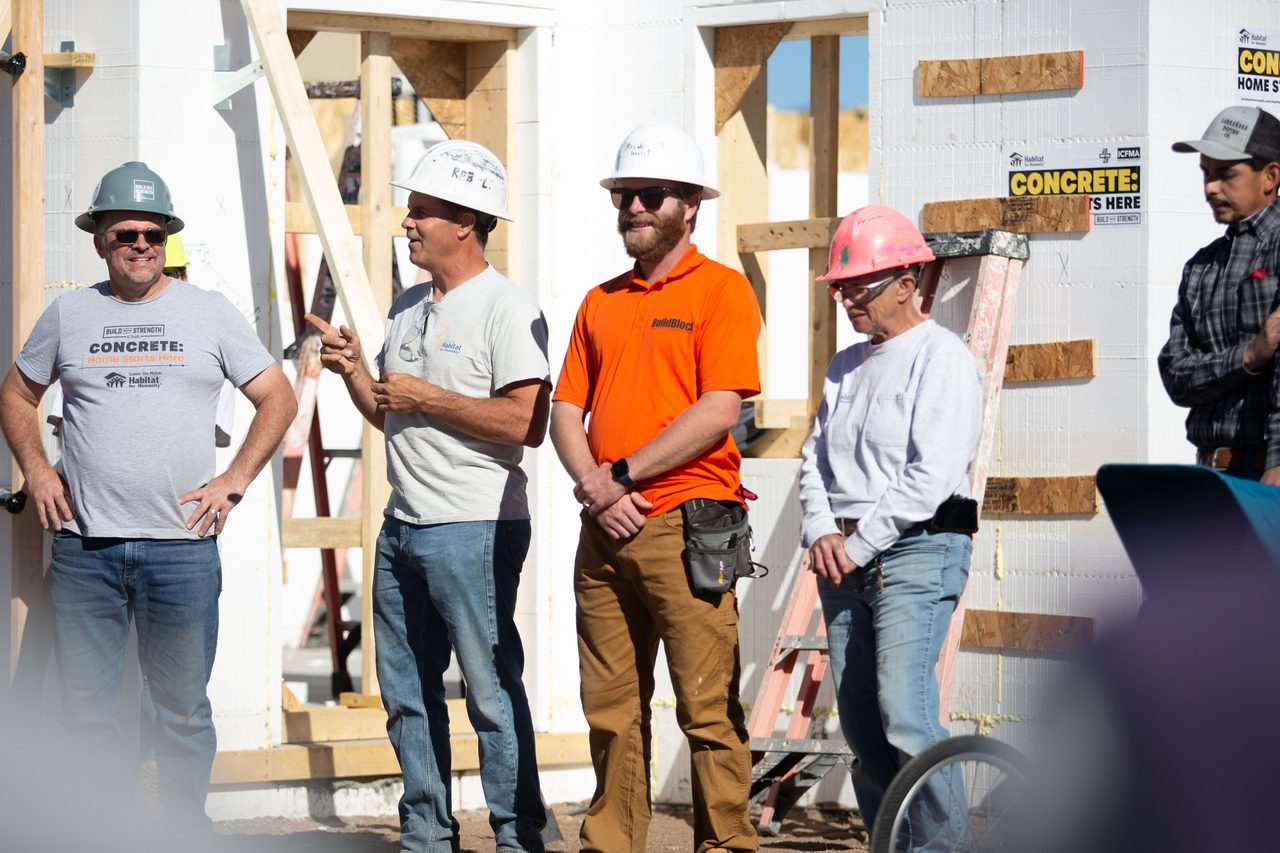
What Do ICFs Do?
Insulating Concrete Forms are hollow EPS blocks that are stacked in place and make up the exterior walls of buildings. The hollow core is reinforced with steel rebar and then filled with concrete. The forms stay in place after the pour and provide strength and durability as well as attachments for interior and exterior finishes. The dense insulation creates a quiet and comfortable living environment, and greatly reduced energy costs for the end user. ICFs are a modular system that is lightweight and easy to move around the jobsite, making them a great material for both construction beginners and experienced builders looking to reduce the physical demands of construction. Each of these reasons make ICFs an excellent choice for a partner like Habitat for Humanity who builds houses all over the world, with construction crews largely made up of volunteers.
I had the privilege of being on one of these Habitat ICF builds recently in Santa Fe, New Mexico. Over the course of five days, volunteers of all different ages, backgrounds, and experience levels stacked, cut, reinforced, braced, and poured concrete in the walls of two ICF homes placed side by side. Five days. That’s all it took to frame two homes with a crew that before this week, had never touched an ICF block. By the middle of the week, we had ICF beginners teaching the opening steps of stacking and cutting to first time volunteers. To say that ICFs are user-friendly would be an understatement, but that is not to say the process is foolproof. It is important to keep in mind that ICF construction is still construction. There is a learning curve anytime you implement new materials, but with proper planning and education the ICF portion of a build is faster, less physically demanding, and produces less waste than when working with wood. Seeing these benefits in the field as first-time users navigate working with new materials is fascinating and speaks volumes about the future of the ICFs in all kinds of construction.
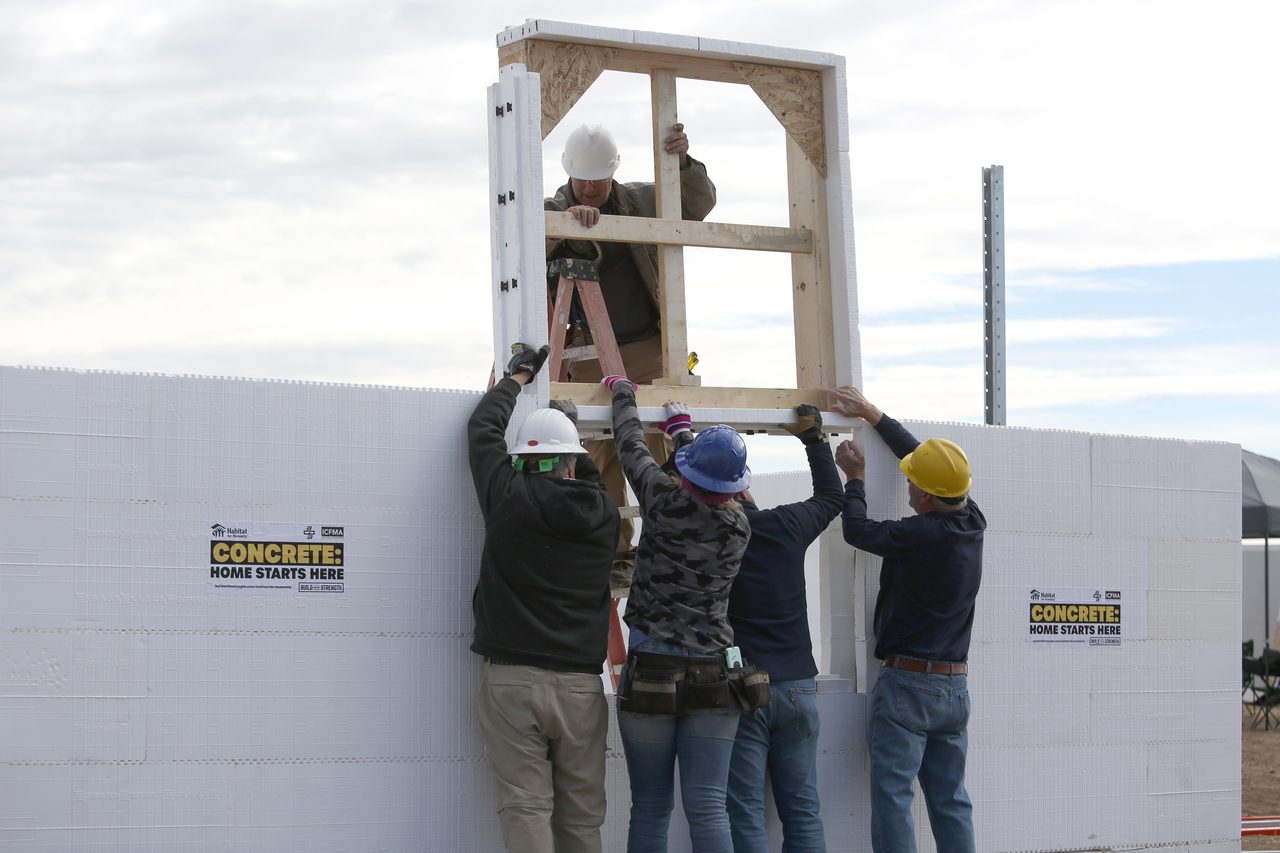
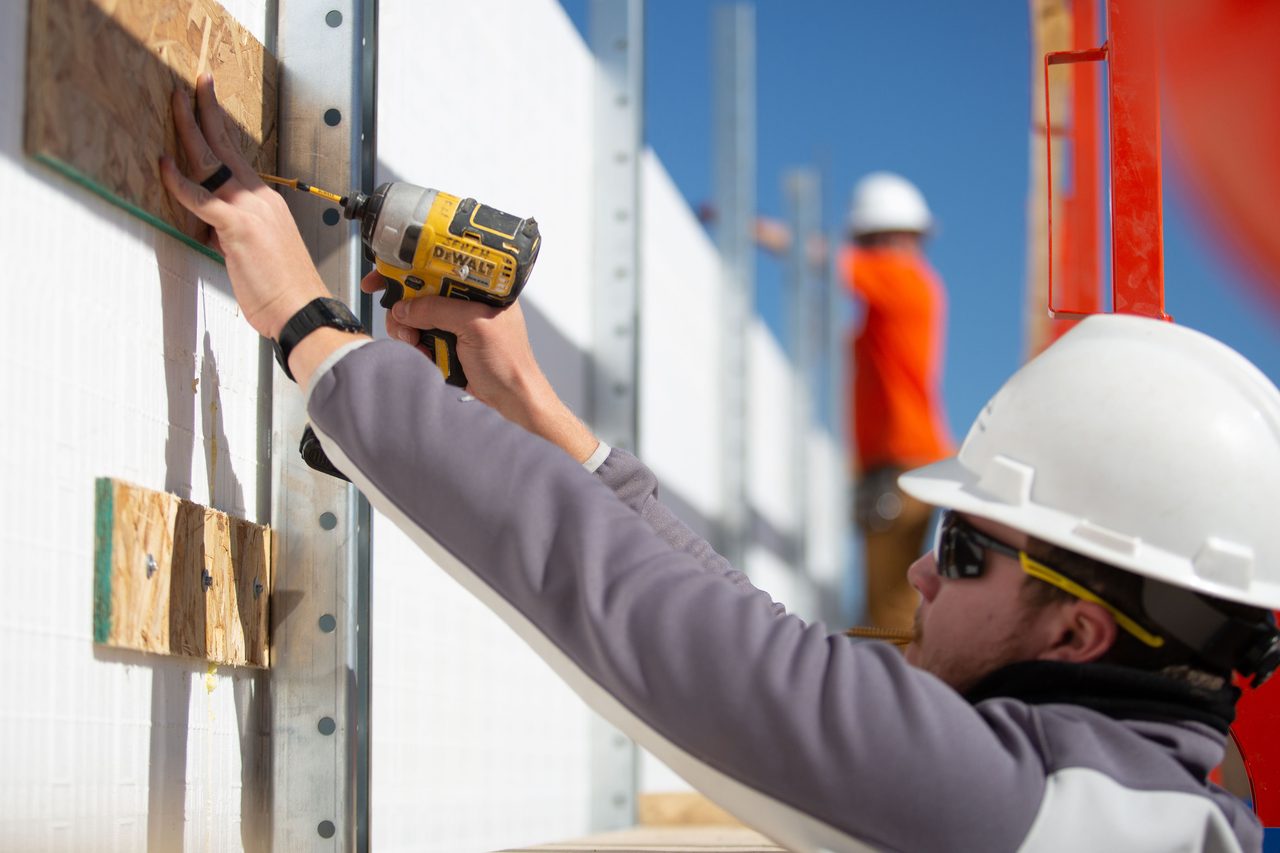
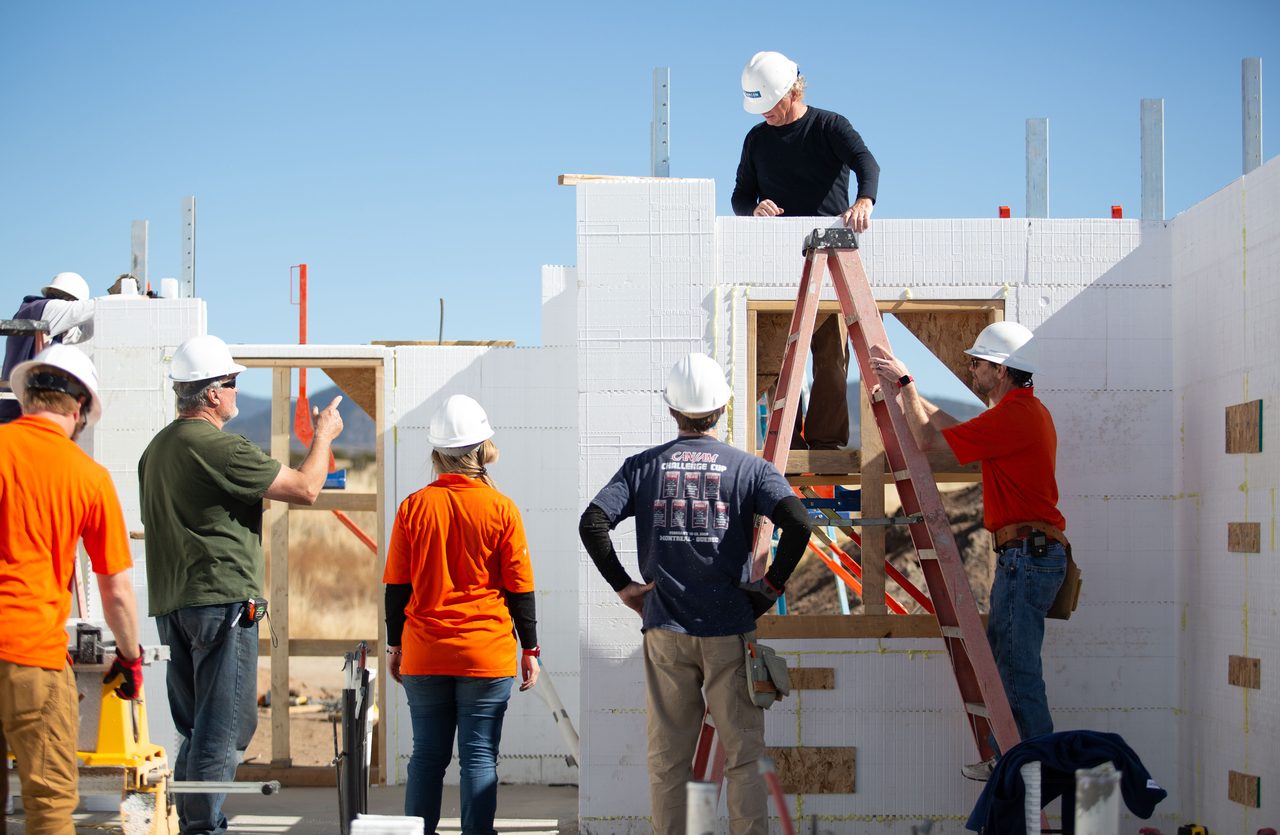
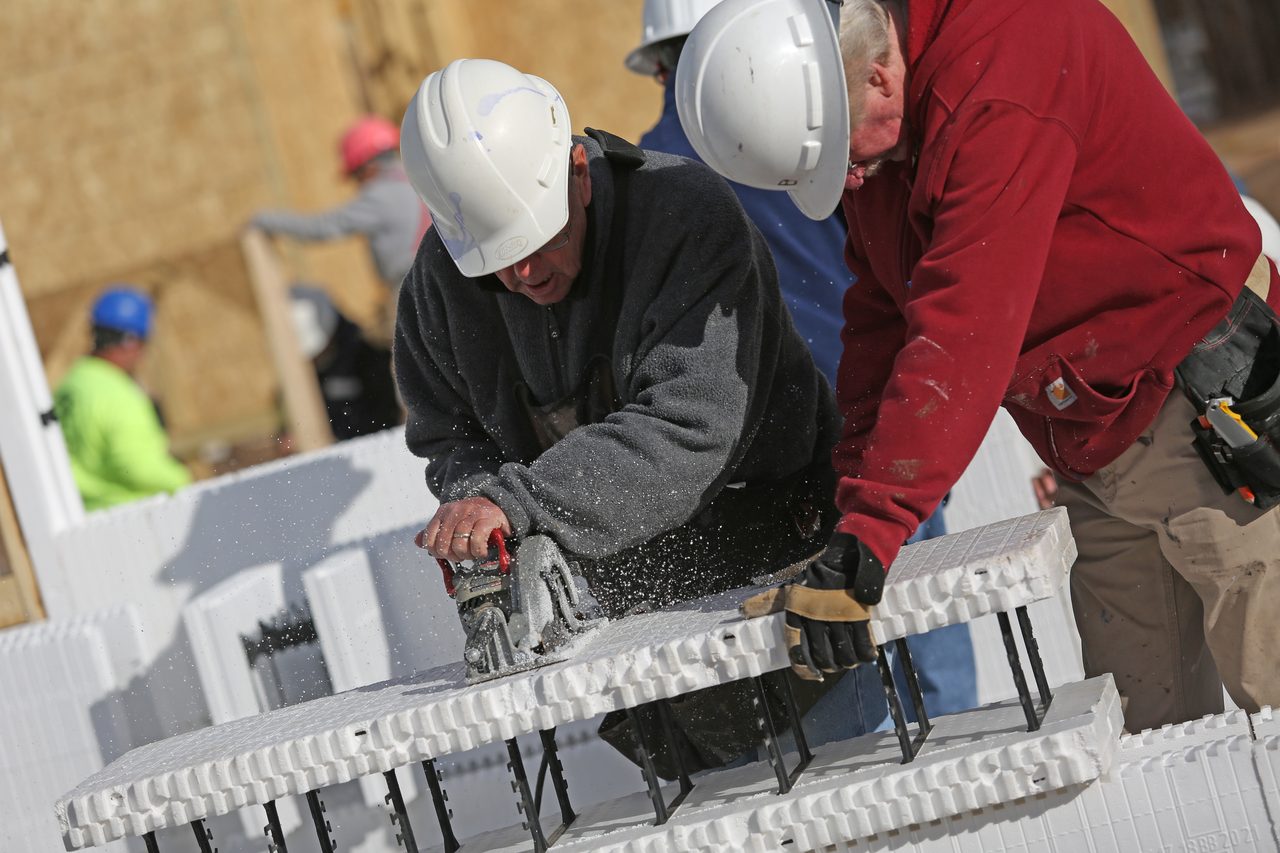
What Can Be Accomplished
At the end of the build, organizations like Habitat for Humanity can provide a house that is safe and comfortable while also being environmentally and economically conscious to its new owners. Due to the incredible thermal resistance of an ICF wall, homeowners will enjoy significantly reduced energy bills for the lifetime of the home. On average, an ICF building requires 40 to 60 percent less energy to heat and cool; these are real-world numbers that have been proven by independent accredited studies that compare ICF walls to fully insulated wood framed walls (the full study can be found at icf-ma.org). These energy benefits are applicable in any climate zone, and further the argument that ICFs are not just an acceptable (and often preferable) building material for people working with a tight month to month budget.
As the price and the availability of wood remains unstable and construction professionals look to provide the best possible home for their customers, ICFs have quickly become a very accessible option for anyone concerned with energy efficiency, disaster resilience, sound mitigation, indoor air quality, and a whole host of other considerations. The fact that ICFs are a viable option for organizations like Habitat for Humanity should be encouraging for anyone looking to build more reasonably and responsibly.
Through the “Build With Strength” program, the NRMCA is making great strides to prove that concrete isn’t just for driveways and warehouses. A wide swath of builders, developers, and organizations are recognizing the fact that concrete, when utilized with ICFs, can improve the carbon footprint of a building while also providing a comfortable and cozy structure. The ICF industry still has significant work to do educating the general public on the benefits of ICF and concrete construction; but through partnerships like this with Habitat for Humanity, there are more opportunities every day. If you are interested in seeing one of these projects in action, keep your eye out for future projects, dates, and locations.
ICFMA Mission
The Insulating Concrete Forms Manufacturers Association is the North American non-profit trade association for the ICF industry. The mission of the ICFMA is to promote and enhance the social, environmental, and economic value of insulating concrete forms in the North American marketplace. Founded in 2014 by a dedicated group of manufacturers to improve the quality and acceptance of Insulated Concrete Form construction in North America, the ICFMA member companies have collaborated over the past seven years on energy-efficiency testing, unified engineering, joint promotion, education, code acceptance, and exploring the integration of emerging building material technologies with ICFs. Learn more at icf-ma.org.
The National Ready Mixed Concrete Association is the leading advocate for the concrete industry. Their mission is to provide exceptional value for their members by responsibly representing and serving the entire ready mixed concrete industry through leadership, promotion, education and partnering to ensure ready mixed concrete is the building material of choice. Learn more about the NRMCA and their “Build With Strength” program at nrmca.org.
Images courtesy of ICFMA.
Isaiah Werner is the director of marketing at BuildBlock Insulating Concrete Forms and serves on the marketing committee of the ICFMA.
